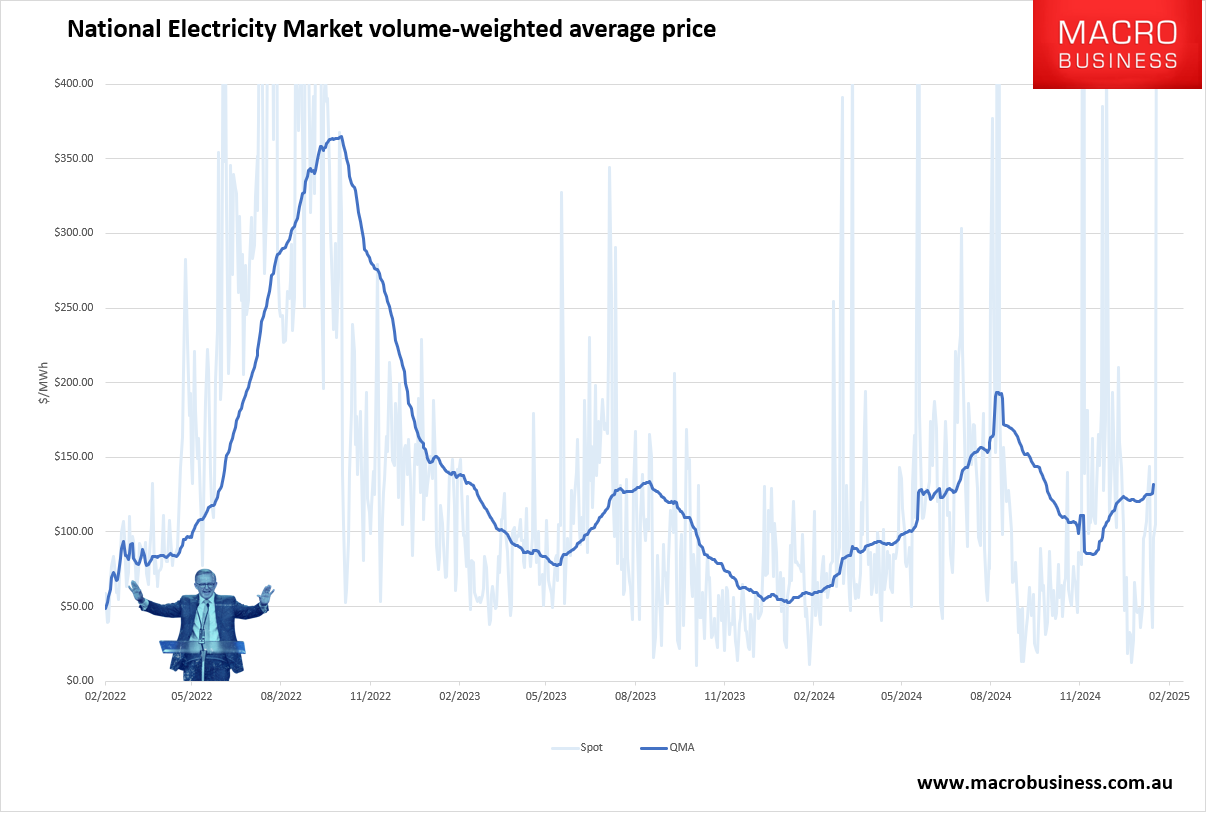Australia’s gas price is already insane. There isn’t a reserved molecule on the East Coast that can’t be extracted for profit at $7Gj, and most of it is half of that, yet the spot price is $14Gj, 400% higher than historical averages.

As a direct result, electricity prices are up 160% year on year and 300% over ten years.

Now every idiot and his dog is pursuing LNG imports as the answer.
Were we importing LNG now, the price of local gas would almost double to $25Gj minimum as incoming flows boost outgoing flows and the gas cartel lifts the marginal price to import parity.
That may seem bad enough. But it gets worse, as today’s newsflow lays bare.
A single US LNG export terminal has gone offline unexpectedly.
U.S. liquefied natural gas company Freeport LNG said on Wednesday it closed its export plant in Texas on Tuesday due to a power feed problem during a winter storm and will keep it shut until power supply stabilizes.
The global price response was instant, with both European and Asian LNG prices jumping almost 5% from already elevated levels.

Once LNG imports start in Australia, these price oscillations will transmit instantly into our energy grid and economy.
For this privilege, we have given up world-beating cheap gas, absolute energy security and stability, ease and affordability in the energy transition, rational politics, tens of billions in taxes, as well as given our existential enemy, China, control of it all.
No country can survive policymaking this catastrophically stupid.
Gas domestic reservation and export levies NOW.

